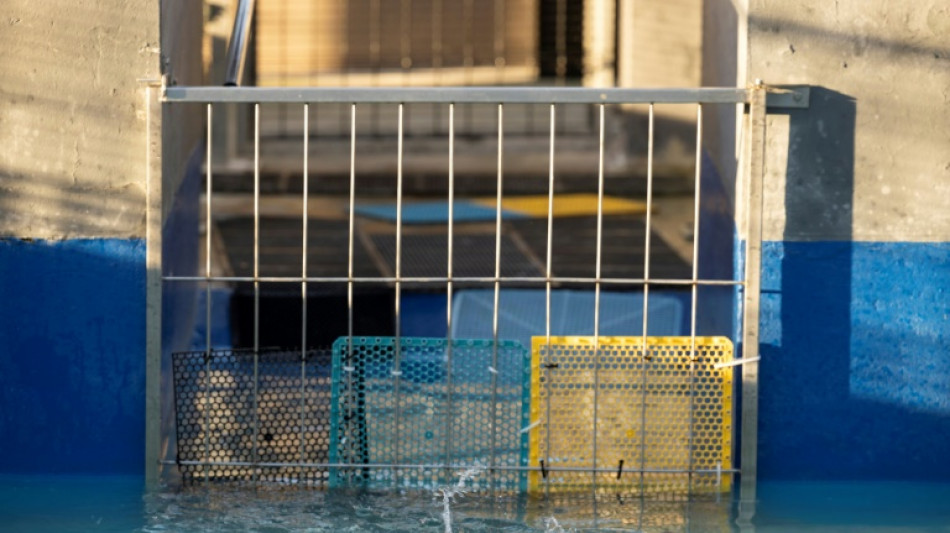
-
 GM profits top estimates, but automaker reviewing outlook due to tariffs
GM profits top estimates, but automaker reviewing outlook due to tariffs
-
Stock markets edge up as Trump softens tariff pain for auto firms

-
 Pricier trainers? Adidas warns on US tariff impact
Pricier trainers? Adidas warns on US tariff impact
-
Spain, Portugal rule out cyberattack for massive blackout

-
 Suryavanshi, 14, dubbed India's next superstar after shattering records
Suryavanshi, 14, dubbed India's next superstar after shattering records
-
Power back in Spain, Portugal after massive blackout

-
 Pakistan says it shot down Indian drone along Kashmir border
Pakistan says it shot down Indian drone along Kashmir border
-
Cardinals run the media gauntlet ahead of conclave

-
 BP profit drops 70% amid pivot back to oil and gas
BP profit drops 70% amid pivot back to oil and gas
-
Iran says fire contained after deadly blast at key port

-
 Irish rappers Kneecap deny support for Hamas, Hezbollah
Irish rappers Kneecap deny support for Hamas, Hezbollah
-
Blackout plunges Spain into chaotic night of darkness
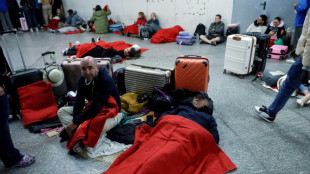
-
 Convicted cardinal confirms he will sit out conclave
Convicted cardinal confirms he will sit out conclave
-
Kashmiris fortify bunkers anticipating India-Pakistan crossfire
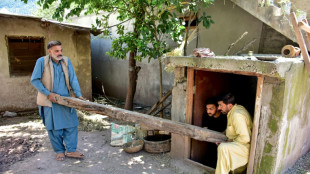
-
 Adidas warns US tariffs to push up prices
Adidas warns US tariffs to push up prices
-
Markets boosted as Trump softens tariff pain for auto firms

-
 Suryavanshi, 14, dubbed 'next superstar' after batting records tumble
Suryavanshi, 14, dubbed 'next superstar' after batting records tumble
-
Australian doubles player Purcell accepts 18-month doping ban

-
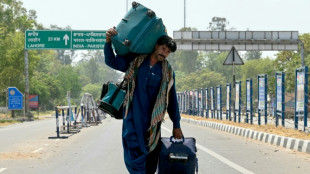 Kashmir attack unites political foes in India, Pakistan
Kashmir attack unites political foes in India, Pakistan
-
Croatia hotel toasts dizzying century of stars, sovereigns and champagne
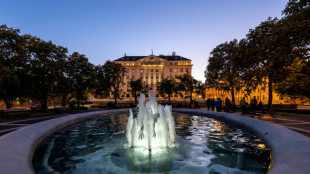
-
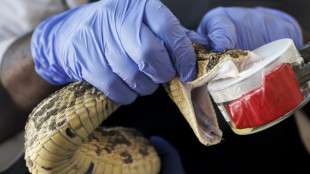 Kenya's desperate need for more snake antivenom
Kenya's desperate need for more snake antivenom
-
Les Kiss in frame with Wallabies set to name new coach

-
 Cavaliers scorch Heat, Warriors down Rockets in thriller
Cavaliers scorch Heat, Warriors down Rockets in thriller
-
Opposition wins Trinidad and Tobago election, returning Persad-Bissessar as PM

-
 Study sheds light on origin of Australia's odd echidna
Study sheds light on origin of Australia's odd echidna
-
France tries Syrian Islamist rebel ex-spokesman on war crime charges
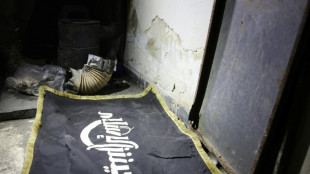
-
 Trump boasts of 'fun' 100 days, but Americans disenchanted
Trump boasts of 'fun' 100 days, but Americans disenchanted
-
Elitist no more, caviar is turning casual
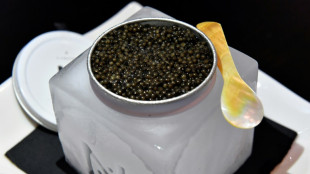
-
 Amnesty accuses Israel of 'live-streamed genocide' against Gaza Palestinians
Amnesty accuses Israel of 'live-streamed genocide' against Gaza Palestinians
-
Inter slump puts season at risk ahead of daunting Barca trip

-
 Power returns to most of Spain, Portugal after massive blackout
Power returns to most of Spain, Portugal after massive blackout
-
'I have hope': Vietnam Babylift survivor's search for birth mother

-
 US climate assessment thrown into doubt as Trump dismisses authors
US climate assessment thrown into doubt as Trump dismisses authors
-
Venezuelan president slams US over little girl's 'abduction'
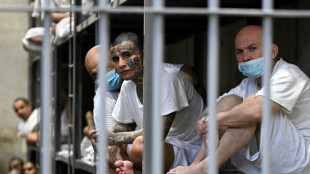
-
 Hard-right upstarts eye big gains in local UK polls
Hard-right upstarts eye big gains in local UK polls
-
Skulls, smoke and spirits: Thai ceremony for the unclaimed dead

-
 Canada's Carney: political newcomer who says he's best in a crisis
Canada's Carney: political newcomer who says he's best in a crisis
-
Cavaliers scorch Heat to seal series sweep

-
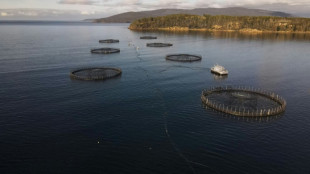 Dead salmon create election stink on Australian island
Dead salmon create election stink on Australian island
-
Mic check: Singapore's podcast boom amplifies opposition voices

-
 Markets rise as traders gear up for earnings, key jobs data
Markets rise as traders gear up for earnings, key jobs data
-
Congress passes 'revenge porn' ban, sending it to Trump

-
 Spain and Portugal work to restore power after massive blackout
Spain and Portugal work to restore power after massive blackout
-
Less-thirsty rice offers hope in drought-stricken Chile

-
 Yamal stardust could give Barca edge on Inter Milan
Yamal stardust could give Barca edge on Inter Milan
-
NioCorp Engages Engineering Firms to Update Elk Creek Project Feasibility Study

-
 Global Sports Brand U.S. Polo Assn. Delivers Record $2.5 Billion in Retail Sales for 2024, Targets $3 Billion and 1,500 U.S. Polo Assn. Stores
Global Sports Brand U.S. Polo Assn. Delivers Record $2.5 Billion in Retail Sales for 2024, Targets $3 Billion and 1,500 U.S. Polo Assn. Stores
-
Meridian's Drilling Extends High-Grade Gold-Copper Ore Zone at Cabacal Via Gold Veins Grading up to 276g/t Au

-
 Measles is Likely to Become Endemic - NanoViricides Is Testing a Drug to Combat It
Measles is Likely to Become Endemic - NanoViricides Is Testing a Drug to Combat It
-
Monogram Technologies Granted Regulatory Approval to Import mBôs TKA System for Clinical Investigation in India


S.Africa clinic hopes to save penguins' future
A small fish is dangled under the beak of an emaciated penguin at a South African clinic, to whet the bird's appetite.
The sickly animal is among dozens undergoing treatment in the coastal town of Gqeberha, where a dedicated rehabilitation centre is on a mission to bring African penguins back from the brink of extinction.
"We are trying to reverse some of the human damage caused to these birds over the years," says Caitlin van der Merwe, a seabird ranger at the Southern African Foundation for the Conservation of Coastal Birds (SANCCOB).
Threatened by climate change and human activity, the endangered species, which waddles awkwardly on land but turns into a fast-swimming torpedo in the water, has suffered a drastic decline in numbers.
Around 50,000 mating pairs -- penguins are monogamous -- inhabited the shorelines of South Africa and Namibia three decades ago. Today the number has dropped to 10,000 pairs.
That's a jaw-dropping 80 percent population decrease, which zoologists say is even more worrying given that a healthy penguin population is considered indicative of a healthy marine ecosystem.
"The species declining, that means there's a big issue in the marine environment," says Carl Havemann, who heads the penguin clinic.
- Climate threat -
The centre is currently teeming with feathered patients.
Over the past two weeks, about 40 baby penguins have been transferred here from Bird Island, an islet home to one of Africa's largest penguin colonies about 60 kilometres off Gqeberha, formerly known as Port Elizabeth.
Heavy rains have battered the island, washing away nests and chicks.
The little black and white birds traditionally dug their nests into a thick layer of guano - a mixture of droppings and remains that accumulate over time.
But the organic substance has been plundered for use as natural fertiliser, and the penguins now have to make do with branches or in cracks in the rocks, which make for a less sturdy home.
And for the first three months of their lives the birds are covered only by grey plumage that offers little protection from water and cold.
The rains caused many to drown or die of hypothermia.
"With climate change, weather events are becoming more and more extreme and these obviously impact the natural colonies," Havemann says.
- Footbath -
Some survivors are being treated in the seabird rehabilitation centre's intensive care unit, where staff are busy disinfecting, stitching and bandaging wounds.
Footbaths, sardines and medicines are also part of the treatment.
In total, around 100 birds, both young and adult, are cared for in the clinic.
The goal is to return them to the wild in the shortest time possible, limiting interaction with humans to what is strictly necessary.
The penguins huddle together, their shoulders raised as if they are perennially cold.
Some are kept hydrated through a small tube inserted in their gullets. Desperate ones are euthanised.
For those who are fit enough, rehab continues in the pool.
"If they don't swim, they don't drink," says van der Merwe, as she whispers soothing words to a small penguin furiously waving its wings while she holds it between her thighs.
It is suffering from borreliosis, an infectious disease caused by bacteria, and needs antibiotics.
Besides extreme weather events, African penguins are also threatened by diseases, overfishing and pollution.
Gqeberha is home to a major port and huge cargo ships refuel offshore.
Spills in the recent past have seen frantic attempts to rescue and clean up oil-tarred penguins.
At current rates of decline, African penguins could become extinct within a decade, according to the Environment Ministry.
"The ocean has such a complexity. If we take bits here and there, the whole system will collapse," van der Merwe says.
D.Sawyer--AMWN

